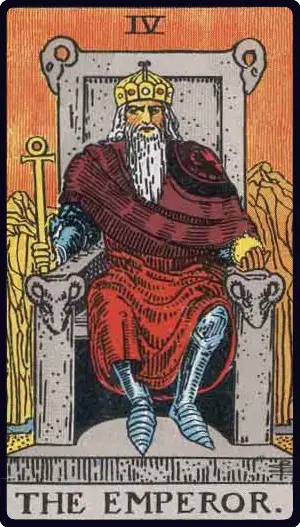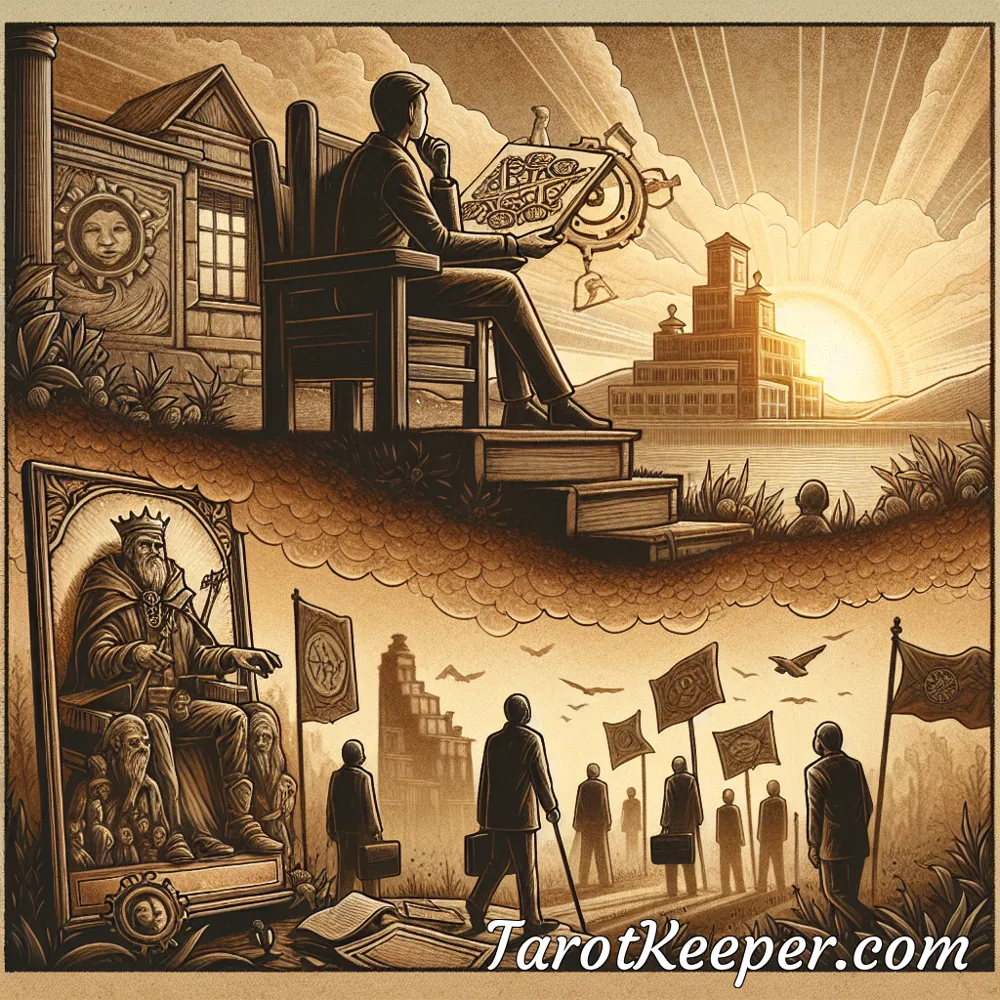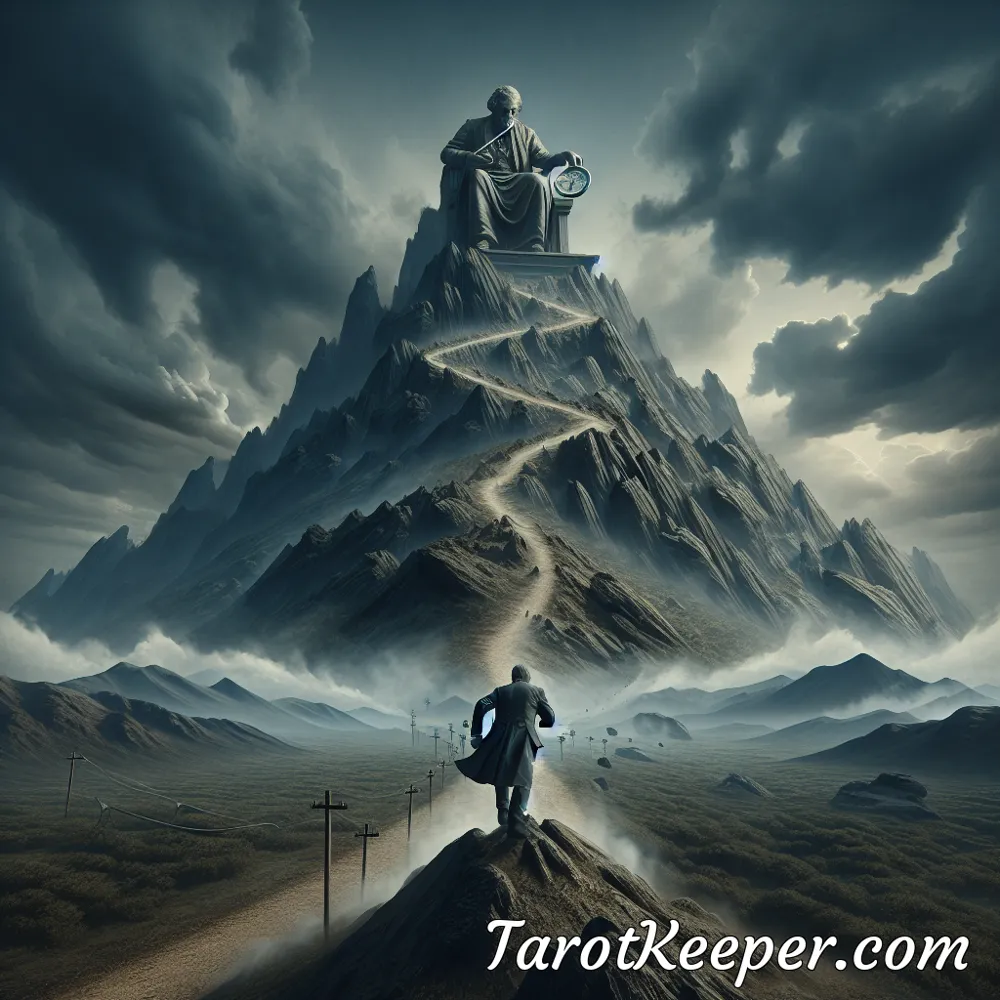


The Emperor is a powerful card in the Tarot deck, representing authority, structure, and control. When it appears in the past position in a Tarot reading, it indicates that the querent has a history of embodying these qualities or has been influenced by someone who does. In this article, we will explore the meaning of The Emperor in the past position and its implications for the individual's life.
Before delving into the significance of The Emperor in the past position, it's essential to understand the card's symbolism. The Emperor is depicted as a figure of authority, sitting on a throne, and holding a scepter, representing his power and control. He exudes confidence and stability, and his presence signifies order and structure in the surrounding environment.
When The Emperor appears in a Tarot reading, it often represents the presence or influence of a strong, authoritative figure in the querent's life. This could be a father, mentor, boss, or any individual who embodies the qualities of leadership, discipline, and responsibility.

When The Emperor card appears in the past position, it suggests that the querent has a history of embodying the qualities of authority and control. They may have been in a position of leadership or have demonstrated a strong sense of responsibility and discipline in their past endeavors. This could have been in their personal relationships, career, or any other area of their life where they assumed a position of power.
Alternatively, the influence of a dominant figure from the querent's past may have shaped their attitude and approach to authority and control. Whether through positive or challenging experiences, the presence of The Emperor in the past position indicates a significant impact on the individual's development and outlook on power dynamics.
In addition to embodying authority, The Emperor in the past position signifies a history of establishing structure and order in the querent's life. They may have been diligent in creating routines, setting boundaries, and maintaining a sense of stability in their environment. This could have manifested in their professional endeavors, personal life, or even in their approach to decision-making and problem-solving.
Furthermore, the influence of a strong-willed individual from the past may have contributed to the establishment of structure and order in the querent's life. Whether through guidance, discipline, or the imposition of rules, the presence of The Emperor suggests a history of adhering to a framework that promotes organization and control.

While The Emperor in the past position signifies authority and control, it may also indicate the challenges and limitations that the querent encountered in their pursuit of power and structure. They may have faced obstacles or resistance in asserting their authority, or their experiences with authoritative figures could have been restrictive or oppressive. This could have influenced their perception of authority and their ability to exercise control in various aspects of their life.
Alternatively, the influence of a dominant figure in the querent's past may have presented challenges and limitations that impacted their development. Whether through strict expectations, rigid regulations, or authoritarian behavior, the presence of The Emperor suggests a history of navigating obstacles and constraints related to power dynamics.
Despite the challenges and limitations associated with The Emperor in the past position, it also signifies the potential for personal empowerment and growth. The querent's history of embodying authority and establishing structure has contributed to their resilience and capacity to navigate power dynamics. They may have learned valuable lessons about leadership, discipline, and responsibility that have shaped their character and approach to control.
Furthermore, the influence of a strong-willed individual from the past may have instilled principles of empowerment and self-reliance in the querent. Their experiences, whether positive or challenging, have contributed to their ability to assert themselves and embrace their own authority, despite the obstacles they may have encountered.
When The Emperor appears in the past position, it also suggests the need to cultivate balance and adaptability in the face of authority and control. The querent's history of navigating power dynamics and establishing structure may have led to a rigid or inflexible approach to leadership and decision-making. It's essential for them to embrace adaptability and openness to change, allowing for a more fluid and dynamic expression of authority.
Additionally, the influence of a dominant figure in the querent's past may have shaped their perspective on balance and adaptability in relation to authority. Whether through a rigid adherence to rules or a resistance to change, the presence of The Emperor signifies the importance of embracing flexibility and openness in their approach to power dynamics.
In conclusion, The Emperor in the past position carries significant implications for the individual's history of authority, control, and structure. Whether through personal embodiment or the influence of a dominant figure, the presence of The Emperor shapes the querent's approach to power dynamics and their capacity for personal empowerment. By acknowledging their history and embracing adaptability, the querent can navigate the complexities of authority with resilience and balance, fostering a sense of strength and stability in their present and future endeavors.
Have questions or need guidance? Reach out to us anytime at [email protected]
We're here to help you on your tarot journey.
© Copyright 2024 by TarotKeeper.com. All rights Reserved.